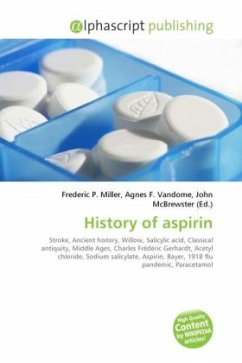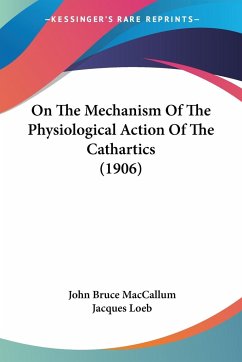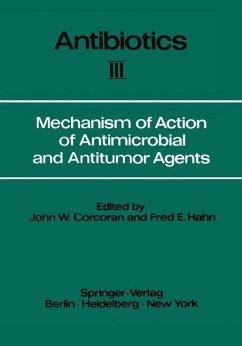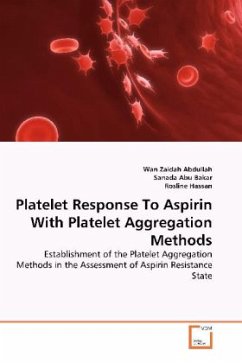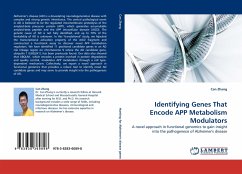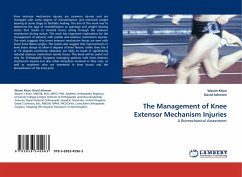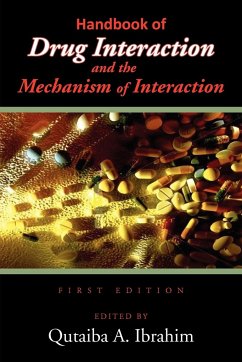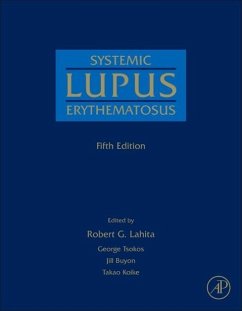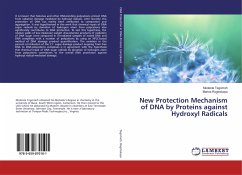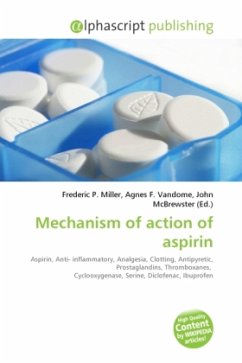
Mechanism of action of aspirin
Versandkostenfrei!
Versandfertig in 6-10 Tagen
30,99 €
inkl. MwSt.

PAYBACK Punkte
15 °P sammeln!
Aspirin causes several different effects in the body, mainly the reduction of inflammation, analgesia (relief of pain), and the prevention of clotting, and the reduction of fever. Much of this is believed to be due to decreased production of prostaglandins and thromboxanes. Aspirin's ability to suppress the production of prostaglandins and thromboxanes is due to its irreversible inactivation of the cyclooxygenase (COX) enzyme. Cyclooxygenase is required for prostaglandin and thromboxane synthesis. Aspirin acts as an acetylating agent where an acetyl group is covalently attached to a serine res...
Aspirin causes several different effects in the body, mainly the reduction of inflammation, analgesia (relief of pain), and the prevention of clotting, and the reduction of fever. Much of this is believed to be due to decreased production of prostaglandins and thromboxanes. Aspirin's ability to suppress the production of prostaglandins and thromboxanes is due to its irreversible inactivation of the cyclooxygenase (COX) enzyme. Cyclooxygenase is required for prostaglandin and thromboxane synthesis. Aspirin acts as an acetylating agent where an acetyl group is covalently attached to a serine residue in the active site of the COX enzyme. This makes aspirin different from other NSAIDs (such as diclofenac and ibuprofen), which are reversible inhibitors. However, other effects of aspirin, such as uncoupling oxidative phosphorylation in mitochondria, and the modulation of signaling through NF- B, are also being investigated.



